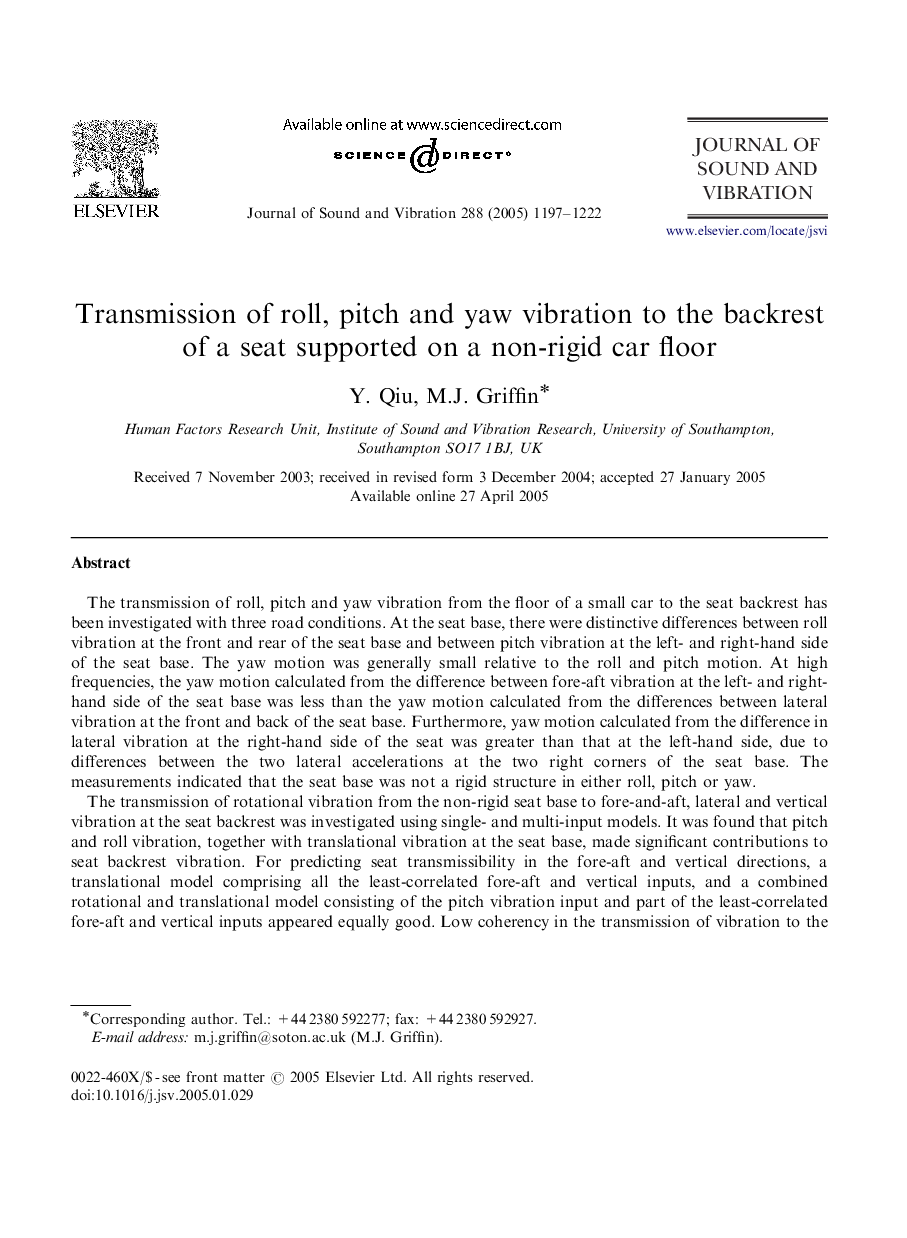| Article ID | Journal | Published Year | Pages | File Type |
|---|---|---|---|---|
| 9640265 | Journal of Sound and Vibration | 2005 | 26 Pages |
Abstract
The transmission of rotational vibration from the non-rigid seat base to fore-and-aft, lateral and vertical vibration at the seat backrest was investigated using single- and multi-input models. It was found that pitch and roll vibration, together with translational vibration at the seat base, made significant contributions to seat backrest vibration. For predicting seat transmissibility in the fore-aft and vertical directions, a translational model comprising all the least-correlated fore-aft and vertical inputs, and a combined rotational and translational model consisting of the pitch vibration input and part of the least-correlated fore-aft and vertical inputs appeared equally good. Low coherency in the transmission of vibration to the lateral direction of the seat backrest observed when considering only translational vibration at the seat base was resolved after taking into account the effect of the roll vibration at the seat base.
Related Topics
Physical Sciences and Engineering
Engineering
Civil and Structural Engineering
Authors
Y. Qiu, M.J. Griffin,
